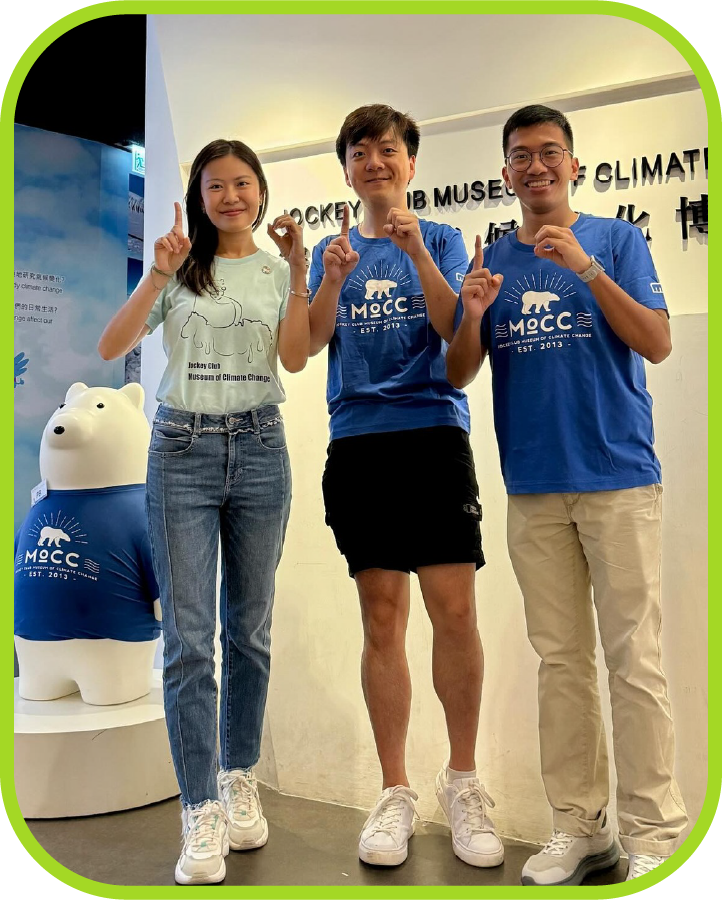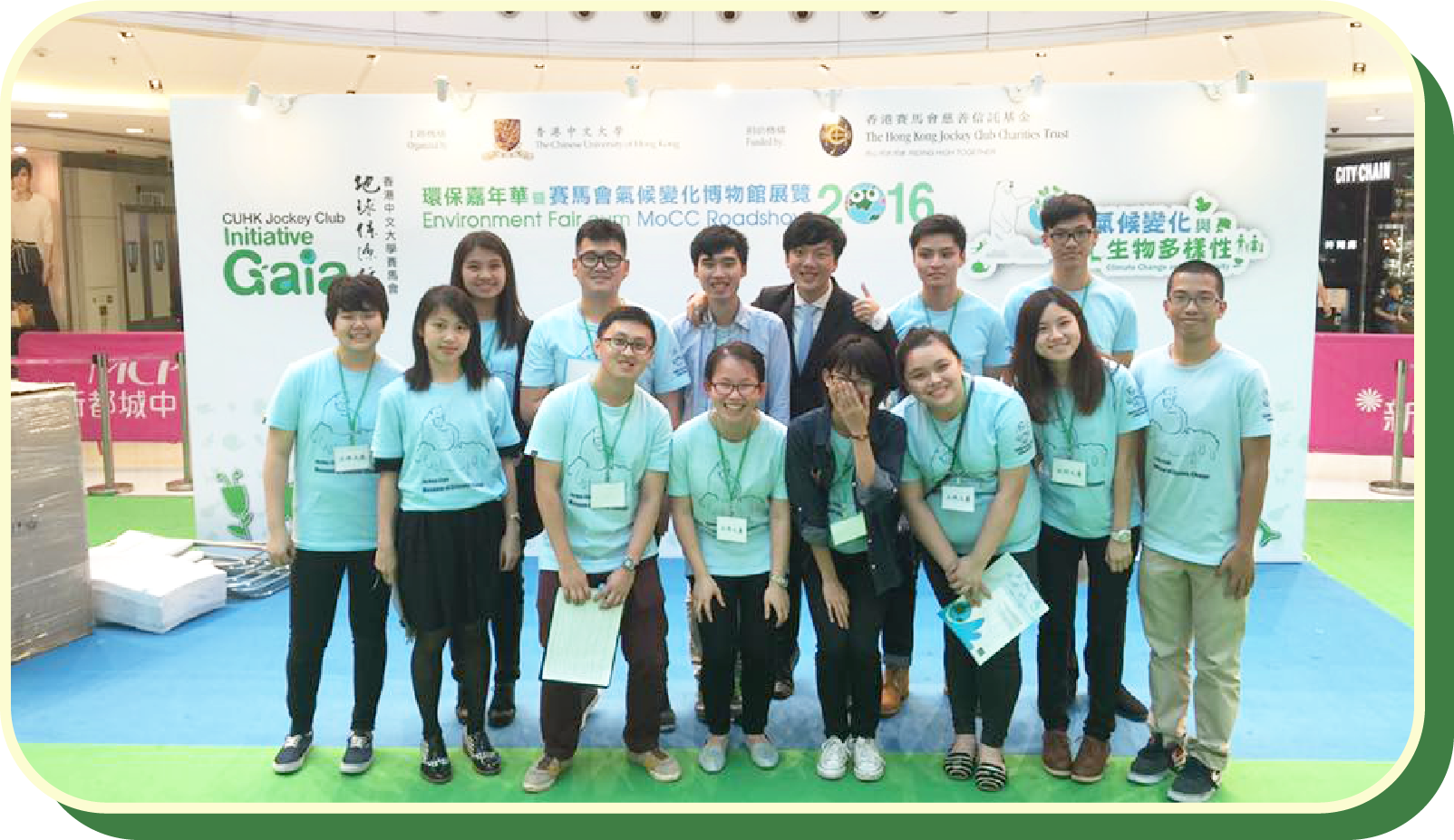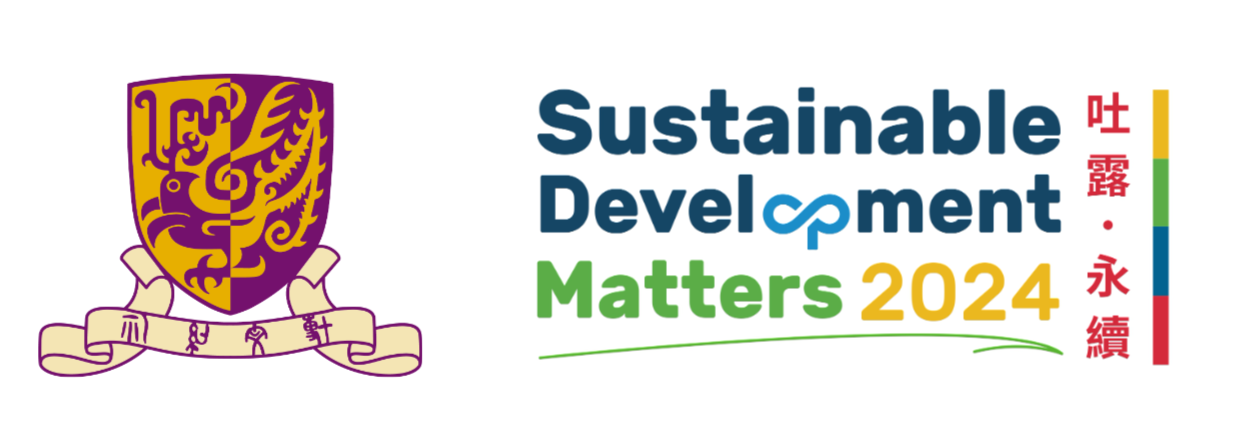Resonance with nature
An MoCC Scholar’s science
and community engagement
# MoCCAmbassador
# IllegalWildlifeTrade
# RosewoodConservation
# MoCCScholar
Photo courtesy of Dr Henry Hung

A baritone voice resonated through the Grove Auditorium of Magdalen College, Oxford, with the soulful melody of ‘Wooden Heart’ on a summer evening in 2023. The performer, who also wrote the lyrics, is not an ordinary musician. He is Dr Henry Hung Tin-hang, a forest scientist at the University of Oxford, where he is a Fulford Junior Research Fellow at Somerville College and a Lecturer in Biology at Magdalen and St Hilda’s Colleges. He is also our newly appointed MoCC Scholar.
Sowing the seeds of climate advocacy
‘I always strive to balance science and humanity within myself’, Dr Hung says. This distinctive combination of traits was evident during his days at The Chinese University of Hong Kong (CUHK). He majored in biology and minored in environmental studies, music and German, while also pursuing courses in gender studies and general education. He admires the logic and rationality emphasized by science, while also cherishing the insights from disciplines like history and sociology, which help him understand the world.
Joining CUHK’s Jockey Club Museum of Climate Change (MoCC) as a student ambassador in 2014 was a transformative experience that shaped his perspective on environmental issues and his research endeavours. A moment of enlightenment came during his ambassador training, when he learned that the name ‘Hong Kong’ originates from a type of incense tree. ‘I was shocked as I used to see Hong Kong as a concrete jungle. But then I know the city’ s name is related to a kind of tree! We humans are, in addition to being beneficiaries of nature’s blessings, closely connected to nature. In cities, we might feel distant from nature, but we should find the link and remind ourselves of this’ .
2024 MoCC Homecoming, with Ms Natalie Chung (left), Inaugural MoCC Scholar, and Mr Toby Lau (right), MoCC Alumnus and Network Coordinator of Sustainable Development Solutions Network (SDSN) Youth Hong Kong


Dr Hung at a MoCC Roadshow as the emcee (back row, fourth from right)
This revelation inspired Dr Hung to focus on public education about climate change and other environmental issues. As an ambassador, he conducted visitors on tours of the museum and campus, explaining the local ecology and CUHK’ s sustainability initiatives. ‘To me, every tour matters. When I saw the sense of enlightenment reflected in visitors’ eyes after a tour, I knew that subtle change was happening’ .
Dr Hung, who graduated in 2017, notes that CUHK’ s biology curriculum is relatively broad compared with universities in overseas countries. Such diversity has been instrumental in helping him communicate and collaborate across various disciplines, particularly in conducting complex research that involves different stakeholders.

Research internship on urban trees during undergraduate year

Planting trees in Cambodia, 2018
Impactful research in Oxford
Dr Hung’ s research at the University of Oxford focused on Dalbergia, commonly known as rosewood, in Southeast Asia. The rosewood species, which account for over 30% of the global illegal wildlife trade, have been exploited to the brink of extinction. By integrating genomic data with climate models, Dr Hung aims to bolster the adaptation and conservation of these species amidst the threat of climate change.
In 2018, he joined a rosewood conservation consortium spearheaded by Oxford. This project involves collaboration with partner institutions, forestry offices, conservation organizations, and local communities across Cambodia, Laos, Thailand, and Vietnam ─ countries within the native range of rosewoods. Dr Hung’s research is about identifying genetic markers for desirable traits such as drought tolerance, and accelerating the identification of optimum varieties for conservation efforts. His research empowers stakeholders at various levels with data and tools to take effective action towards conserving endangered rosewood species while supporting sustainable livelihoods for local communities.
Dr Hung has identified genetic variants associated with environmental variables like rainfall and temperature, allowing for projections of genetic adaptability under future climate scenarios. In addition, thanks to the consortium’s dedicated efforts, several rosewood species were reclassified as ‘critically endangered’ on the International Union for Conservation of Nature’ s Red List of Threatened Species in 2022.
His involvement with the Oxford University Museum of Natural History also provided him with new perspectives on science communication. ‘I interviewed visitors about their thoughts on the museum displays, which were then used to improve the exhibitions. This experience enhanced my understanding of effective storytelling techniques’, he said. ‘After all, science is not finished until it is communicated’.
To young people aspiring to become scientists, Dr Hung highlights the importance of ‘the three Cs’ : curiosity, compassion, and commitment.
‘Curiosity is the thirst for knowledge’, Dr Hung explains, recalling his fascination with the origin of Hong Kong’s name. ‘Compassion is about how I work with others during my research. I consider the perspectives and interests of all parties involved, rather than just focusing on publishing a thesis. Commitment is about understanding your role in society and what you aim to achieve. With optimism and hard work, I believe that over the decades, I can contribute to positive changes in the world’ .
An artist, a scientist, and a leader
The MoCC Scholars initiative, launched during MoCC’s 10th anniversary in 2023, aims to nurture climate leaders by providing leadership opportunities to alumni, fostering community engagement, and offering institutional support. It supports alumni-led projects, enabling impactful change towards sustainable development and climate action.
As a newly nominated MoCC Scholar, Dr Hung is full of ideas for collaborating with his alma mater. His plan targets three key groups. First, he aims to engage the public by organizing lectures, workshops, and exhibitions. He wants to raise awareness about the interconnectedness of the world, illustrating how a problem like the endangerment of polar bears in the North Pole shares the same root with rising sea levels in Hong Kong. By adopting the mantra ‘think global, act local’, he aims to educate the public about environmental conservation.
He also seeks to connect with like-minded scientists in Hong Kong. ‘With proper funding, I hope to collaborate on projects related to conservation and climate change, such as conserving our urban forests’, he explains.
Lastly, deeply inspired by his own experience as a student ambassador, Dr Hung is passionate about mentoring the next generation of MoCC ambassadors. He earlier provided advice to improve the educational materials for the CUHK Tree Tour, which remain in use today. He is eager to share his story and motivate more young people to join the battle against climate change.
Dr Hung’s passion for exploring the relationship between science and nature through art is evident in his various interests, which range from classical singing to poetry. His poem ‘Wooden Heart’, performed with music composed by his CUHK classmate Alvin Leung Pak-hei, reflects his deep affection towards trees.

Dr Hung joins the United College Choir as conductor
His research on rosewoods has earned him significant accolades. He was named a National Geographic Explorer in 2022, and won the Irene Manton Prize in 2024. He feels honoured by these awards, viewing them as encouragement for his long-term research efforts. He is also grateful for the recognition, as it provides him with more platforms on which he can share his research philosophy and advocacy. With hope and perseverance, he is dedicated to advancing environmental conservation and fostering public engagement.

